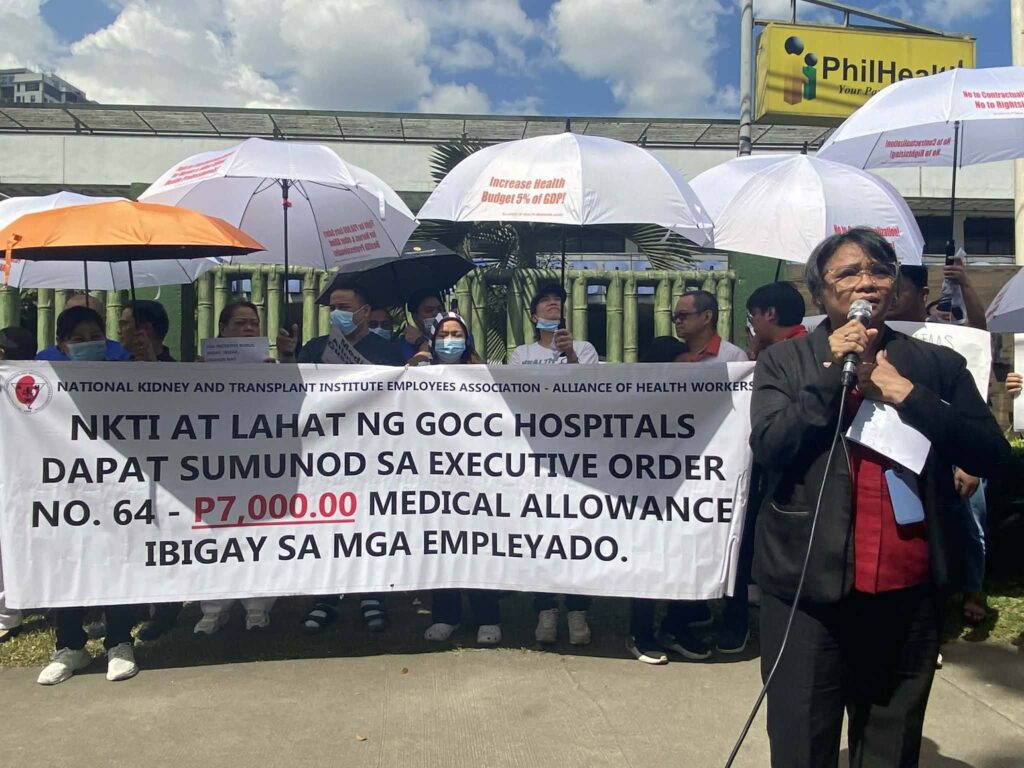📷It’s All About Politics
More than 80 percent of district seats in the House of Representatives are held by members of political dynasties, according to the Philippine Center for Investigative Journalism (PCIJ).
Data posted on PCIJ’s website showed that most of these dynasts are seeking reelection in the 2025 midterm elections, while others are planning to swap positions with relatives to maintain their political influence.
A political dynasty is defined as “the concentration, consolidation, or continuation of political power among individuals who are related to each other.”
“Kapag may kamag-anak ka. And, based on proposed laws, those who are related by consanguinity or affinity — consanguinity by blood of affinity in law. Some say it should extend up to the third degree, while others want it limited to the second degree,” said Political science professor Julio Teehankee.
Of the 253 district representatives, PCIJ’s count shows that 142, or over half, are dynasts running for reelection. Additionally, at least 67 outgoing district representatives have opted to exchange positions with family members, a strategy that ensures their political power remains intact.
Notably, nearly half of these representatives are term-limited, highlighting the maneuvering necessary to extend their political legacies.
In Ilocos Norte, the trend of reelectionist dynasts is particularly evident, with presidential son Ferdinand “Sandro” Marcos representing the 1st District and his uncle Angelo Marcos Barba vying for a third term in the 2nd District.
Similarly, in Las Piñas City, Senator Cynthia Villar is transitioning back to her former role as a congresswoman, while her daughter, Representative Camille Villar, is pursuing a Senate seat.
“We’ve been through many elections, and this (the rule of political dynasties) has always been the problem. But because some famous personalities, along with their family members, filed under such circumstances, it became a bigger concern,” Legal Network for Truthful Elections (Lente) executive director Rona Ann Caritos said.
PCIJ, citing various studies, noted a link between a high concentration of political families, underdevelopment, and corruption.
A study conducted by the Ateneo School of Government in 2022 found that “political concentration in a province fosters an environment for predatory actions, which expands the dynast’s chances for corruption while restricting the ability of citizens and businesses to hold them accountable.”
According to Caritos, there is a reduced capacity for checks and balances in areas governed by dynastic families.
“If you have families controlling the executive and controlling the legislative branch of government, there’s no check and balance anymore. That’s why corruption happens… why people don’t get the service and the programs that they really deserve,” Caritos said.
Teehankee said Filipinos still vote for those who are under political dynasties due to their capacity to provide social programs, ayuda for constituents, and low supply of competent leaders in the Philippines.
“Hindi naman galing sa (dynasties) ang aid na ‘yan… Nanggagaling yan sa buwis natin,” Teehankee said.
“There’s a high demand among voters for good politics, good governance, and issue-based politics. The problem is, there’s a limited supply of such kind of politicians due to cartel, oligopoly, monopoly of dynasties,” Teehankee added.
Senate President Francis “Chiz” Escudero, a member of the influential Escudero family in Sorsogon, promised he would not obstruct the passage of such a measure if it comes to political dynasties.
However, Escudero cautioned political reform advocates not to get too optimistic, stating that the measure has a low likelihood of being approved.
“Produkto ako n’yan, hindi ko haharangin ‘yan. Kung kailangan ng boto ko para mapasa ‘yan, boboto ako dahil laban naman ‘yun sa interest ko,” Escudero said. (TCSP)




